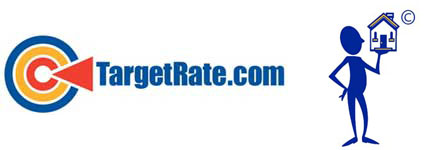The mere mention of the words “closing costs” can send shivers up your spine and cause you to put your head between your legs and start sobbing. No one likes to pay money, especially extra money and when you purchase or refinance a home you are already committing to the biggest financial cost of your life. But, unfortunately just having the loan itself is not the only cost. There are other expenses and other parties that are involved to make this happen. Closing costs can be divided into four parts.
LENDER FEES: These are the costs that you pay to obtain a loan. If you are paying all cash you won’t have to worry and you can skip this topic. Most of us are not that fortunate.
The lender is going to review your documentation and then prepare loan agreements for you to sign. The property will get appraised and your credit will be checked. Therefore, a processing, underwriting, appraisal and credit report fee are normal expenses. The property may result in a change of title and therefore a new tax contract with the county. That may lead to a tax service fee. And then there are points or origination fees. A point is equal to 1% of your loan amount so on a $200,000 loan a one point fee would be $2,000. Points are really a buy down of the interest rate on your loan. As an example your rate could be 4.5% with zero points or 4.25% with 1 point. Points are interest and are tax deductible.

ESCROW/TITLE FEES: These are the costs associated with the independent third party who handles the collection of documents, official payoff and recording and certifies that the property is exchanged between the buyer and seller. There will be a processing or escrow fee paid to handle this process. There will also be a title insurance policy issued which verifies that as of the day of the closing the title is correctly vested without cloud to the party on the loan. This insurance policy is only good for the day of closing. It’s an expensive but very necessary part to assure all parties that you have legal ownership to this property. There will be recording fees with the county as the escrow/title company goes to the county office and stands in line to get the documents stamped. There will be wire fees and overnight fees associated with the payoff of any existing loans as well as the new loan documents. Whether you sign in an office or someone comes to your home there will be a notary charge.
RECURRING CHARGES: When you purchase a home you will have new expenses. Insurance, taxes and loan payments. When you close a loan transaction you will have some of these charges collected but they are not extra fees. On a purchase, for example you may close on the 15th of the month, but the new loan won’t begin until the 1st of the following month. Loan payments are paid in arrears which means the payment you make is for the previous month but since you are closing on the 15th of the month you have to pay interest on the new money you are borrowing until the end of this month. The same process holds true for taxes and insurance.
IMPOUNDS: The lender wants to know that there is money to pay the property tax bill and insurance policy. Some loans require this amount to be paid thru your payments and therefore an impound or holding account is established to have these funds available. The lender will require you to fund this account with a reserve amount upfront. Depending on when the county tax bill is due you may have to advance anywhere between 2 and 7 months of your property tax payment. If you are paying mortgage insurance (MI or PMI) you may have to advance 2-4 months of this payment as well.
To discuss your confidential scenario please contact Mitch Lichterman Mitch@TargetRate.com or Click Here to schedule an online appointment

Phone: 310-478-4999
Email: mitch@targetrate.com
Skype: mitch.lichterman
